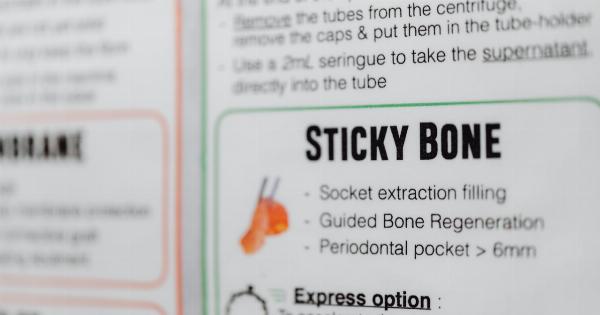Bringing a child into the world is an extraordinary experience that comes with endless changes, both emotional and physical. For women, pregnancy is a time when their bodies go through enormous adjustments.
They gain weight, their organs shift, and their hormones change. And after delivery, a woman’s body undergoes even further changes as it heals and returns to its pre-pregnancy state.
Common Bodily Changes: The Body After Delivery
The post-pregnancy period, commonly referred to as the “fourth trimester,” can be a challenging time for new moms.
Not only are they caring for their newborns, but they’re trying to adjust to their new bodies, which undergo a myriad of changes. Here are some common modifications that occur:.
1. Breast Changes
Many women’s breasts will significantly increase in size during pregnancy. The hormones produced during this time stimulate the production of milk and expand the ductwork.
When the baby is delivered, a woman’s hormone levels will drop, and her milk will come in. This production of milk will cause the breasts to become heavier and engorged.
Over time, as the milk supply regulates, the breast size will reduce, but most women will find that their breasts have changed in shape and texture even after the milk supply stabilizes.
2. Stomach Changes
For most women, the stomach is where the most prominent changes occur during pregnancy. As the baby grows, the uterus expands, pushing nearby organs aside. Once the baby is born, the uterus will begin to shrink back to its original size.
It’s common for women to experience cramping as the uterus contracts and for the discharge of blood and mucus. However, even after the uterus has returned to its original size, there may be loose skin and stretch marks, which can take time to heal.
3. Vaginal Changes
The vaginal area may undergo significant changes during pregnancy and delivery. The cervix may have expanded during labor, and the perineum – the area between the vagina and the anus – may have torn.
Post-delivery, it’s not uncommon for new moms to experience some pain, swelling or soreness. While the vaginal area should heal within a few weeks of delivery, women who have had an episiotomy or tearing may require additional care.
Kegel exercises can help to strengthen the pelvic floor muscles that support the uterus, bladder, and rectum, which may have been weakened during pregnancy and delivery.
4. Hair Changes
Hormones play a significant role in hair growth during pregnancy, often leaving women with thick and lush locks. However, after delivery, hormone levels drop, and many women may experience hair loss. This shedding is temporary and should stop on its own.
Rest assured that your hair will return to its normal growth rate within a few months.
5. Skin Changes
During pregnancy, many women experience hormonal acne or a pregnancy “glow.” After delivery, the skin may continue to have acne or breakouts, but this is temporary.
Many women also experience changes in their skin’s pigmentation, particularly on their faces, commonly called melasma. This may persist even after pregnancy.
6. Emotional Changes
Adjusting to a new baby and a changed body can be emotional and challenging for many new mothers. The postpartum period can be trying, as many women experience feelings of sadness, anger or anxiety.
It’s essential to acknowledge these feelings and seek support, particularly from a mental health professional if necessary.
How to Cope With Post-Pregnancy Changes
Although post-pregnancy body changes can be trying, there are plenty of ways to cope:.
1. Take care of your body
Sleep when you’re able, eat nourishing foods and be sure to move your body. Walking or gentle yoga can help support the body’s physical and emotional healing process.
Be patient with yourself, and don’t expect to immediately return to your pre-pregnancy routine.
2. Find support
Join a support group, speak with other new mothers, or seek out support from a healthcare provider or mental health professional. Find the resources that work best for you and your needs.
3. Take care of your mental health
Pregnancy and postpartum can be incredibly emotional times, and it’s essential to prioritize your mental health.
Talk to a counselor or therapist if needed, practice daily self-care, and try to balance your new responsibilities with rest and relaxation.
4. Embrace the changes
Beyond the physical changes, having a baby changes your life in many ways. It’s essential to embrace these changes and be patient with yourself through the process.
Bringing It All Together
Pregnancy and childbirth are significant milestones that bring with them major changes to the body. Knowing what to expect during post-pregnancy can help women to better cope with these changes as they occur.
Remember that each woman’s postpartum experience is unique, and there’s no right or wrong way to adjust to motherhood. Give yourself the grace, support, and time you need to care for your mind and body.




























